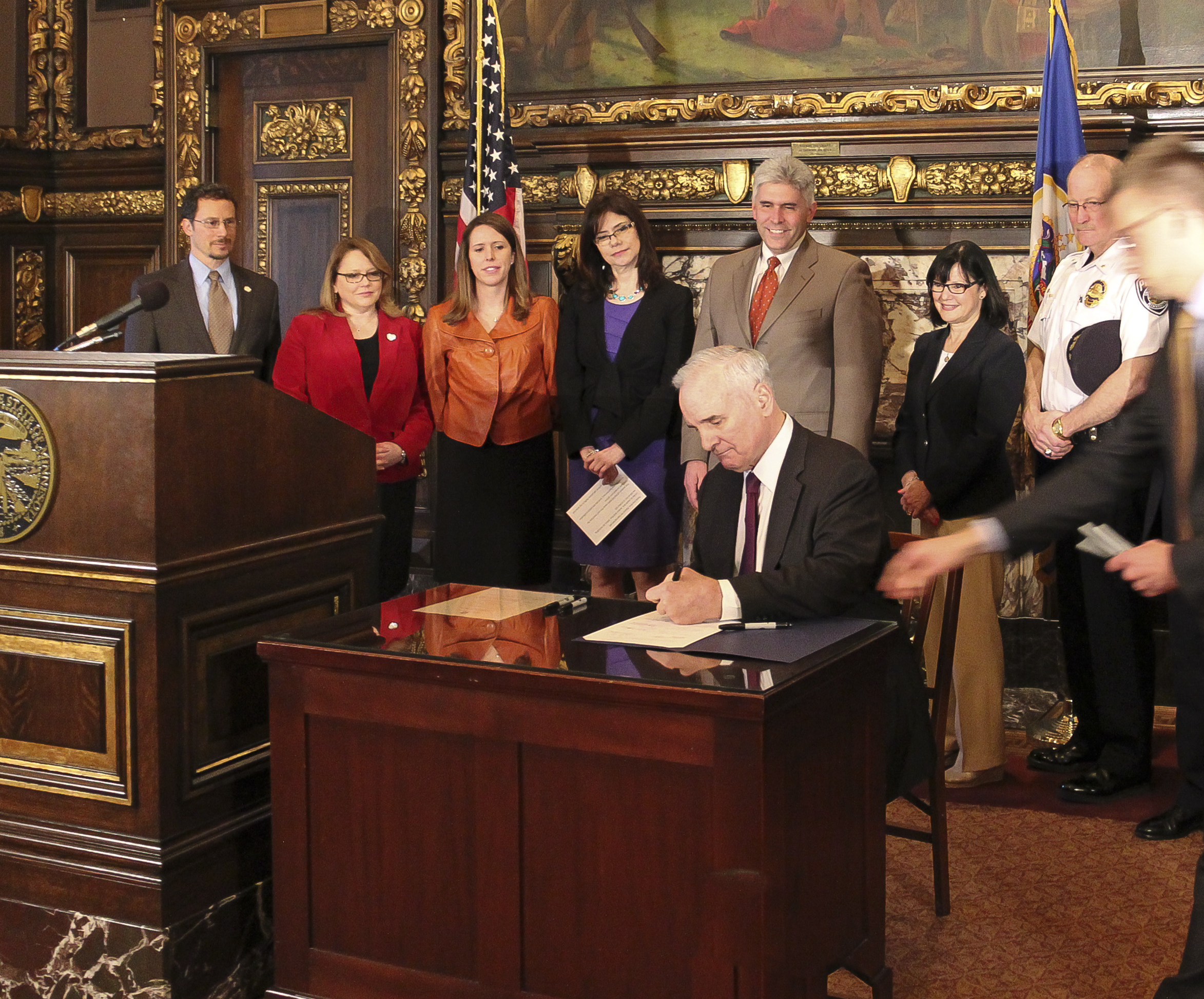5/14/2014 10:14:43 AM

Governor Dayton Signs Smartphone "Kill Switch" Legislation,New consumer protection law is first of its kind in the nation
Today, Governor Mark Dayton signed nation-leading legislation (Chapter 241, SF1740) requiring all new smartphones sold in Minnesota after July 1, 2015, to have an anti-theft "kill switch" function. This new kill switch function will allow smartphone owners to remotely disable their smartphone if it is lost or stolen, rendering the devices useless to thieves and reducing the incentive for a growing wave of violent cell phone thefts.
"This law will help combat the growing number of violent cell phone thefts in Minnesota," said Governor Dayton. "I thank Representative Atkins, Senator Sieben, Senator Dziedzic, law enforcement officials, and the many student advocates who championed this legislation."
The desirability, resale value, and personal and financial information on smartphones makes them a prime target for thefts and robberies. During legislative hearings, University of Minnesota police testified that up to 62 percent of robberies on campus are cell-phone related.
"With this new law, Minnesota is leading the way and acting on this growing threat to public safety," said Rep. Joe Atkins, who authored the bill in the House. "I want to thank the University of Minnesota students and law enforcement who worked to make this law a reality. This kill switch law is another piece of the many consumer protection measures enacted over the last two years."
Nearly 1 in 3 U.S. robberies involve phone theft, according to the Federal Communications Commission. Lost and stolen mobile devices cost consumers more than $30 billion last year.
Cell phone theft is a major concern here in Minnesota and around the country," said Sen. Katie Sieben, who authored the bill in the Senate. "This legislation, which is the first of its kind in the country, will help reduce the likelihood that people will be robbed of their smart phones."
Sen. Kari Dziedzic authored provisions that prohibit device dealers from using cash to purchase used electronic devices. Under the new language, a retailer would pay for the device through a mailed check, electronic transfer or store credit.